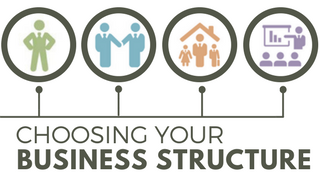Thanks to the plethora of resources available to aspiring entrepreneurs, it’s easier than ever to start a business in Connecticut. However, there are still some steps you’ll need to go through before your business can begin legal operations.
Connecting several states in the northeast, Connecticut could be an ideal area in which to start your business. There are several major hubs for small business entrepreneurs, including major metropolitan areas around Hartford, New Haven, and Stamford, where you can find many other ambitious peers—and plenty of resources you can use to grow your business.
Forming a Business in Connecticut
You’ll need to decide how to structure your Connecticut business before you get too far in the planning process. For example, you’ll need to decide whether to start a sole proprietorship, a partnership, a limited liability company (LLC), or a corporation. Some of these businesses are easier to start and manage than others. Sole proprietorships and partnerships, for example, are very simple, and don’t take much time or effort to manage. LLCs are slightly more complicated, but corporations are the most complicated. They’re relatively difficult to start, and must follow strict operational regulations due to their ability to be publicly traded.
You may also consider the tax advantages of these different business types. As a sole proprietor or a member of a partnership, you’ll simply pay taxes as an individual on any money you make in the business. If you start an LLC, you’ll treat the business as a pass-through entity. You won’t owe taxes on income generated by the LLC directly, but you’ll owe taxes as an individual on any profits or salary you take from the business. Corporations are also considered pass-through entities, but you’ll owe taxes both as an individual on money you take from the business and on income generated by the business. In Connecticut, you’ll owe corporate income taxes based on the greatest of three amounts: either 7.5 percent of your net income, a percentage of your capital holdings, or a $250 minimum tax.
Finally, you’ll want to consider your liability exposure with each business type. As a sole proprietor or a partner, you’ll face excessive liability exposure; any debts you take on will apply to you personally, and you may be held liable for the actions you take on behalf of the company. LLCs provide some degree of protection, since they’re treated as a separate legal entity, and corporations provide you with significant liability protection.
Federal Tax ID (EIN) Number Obtainment
The majority of Connecticut businesses will need to get a federal tax ID number, also called an employer identification number or EIN. This is a nine-digit number assigned to your business uniquely when you register with the federal government. You’ll need one if you’re going to hire employees or if you’re going to have multiple business members, which means nearly all partnerships, LLCs, and corporations will need one automatically. You’ll also need an EIN to open a business bank account, apply for business credit, or apply for any number of business licenses and permits. In the rare case where you aren’t strictly required to have a tax ID number, it may still be advantageous to get one; you can use it in place of a social security number on certain applications.
Getting a tax ID number is simple if you use our federal tax ID number obtainment services. Apply online and answer a series of questions about your business. After you’re done, we’ll email you your tax ID number in less than an hour.
Connecticut State Tax ID Number
Most Connecticut businesses will also be required to have a Connecticut state tax ID number. This is a unique identification number like the federal tax ID, but it applies at the state level when you register your business with Connecticut. You’ll need a Connecticut state tax ID number if you’re going to hire employees in the state of Connecticut, if you’re going to owe sales taxes in the state, or if you’re going to owe excise taxes, which apply to some regulated goods like alcohol, tobacco, and gasoline.
Before you can get a Connecticut state tax ID number, you’ll need to have a federal tax ID number in place. Once you have that, you can make use of our Connecticut state tax ID number obtainment services. Apply online, and you’ll answer several questions about your business, similar to the federal tax ID number application. You’ll receive your tax ID in 4 to 6 weeks.
Localized Licenses and Permits in Connecticut
In Connecticut, there’s no single business license or permit that covers all types of companies. Instead, there are several potential licenses, permits, and certifications you may need to legally operate, which typically apply at the local level. These required licenses and permits vary by industry, and there are too many to concisely list in a single article. Talk to your local Chamber of Commerce to see which licenses may apply to your business.
Small businesses and entrepreneurship are common in the state of Connecticut. There are more than 342,000 small businesses currently, which make up 99.4 percent of all businesses in the state. They employ nearly half the state’s working population, with more than 735,000 small business employees. In addition, Connecticut has been seeing a higher economic growth rate than the national average, with a growth rate of 3.9 percent.
The majority of business licenses and permits will require you to provide a federal tax ID number, making it a strict requirement if you need a license to operate legally. Use our federal tax ID number obtainment services and Connecticut state tax ID number obtainment services to get the tax ID numbers you need faster.



